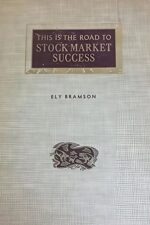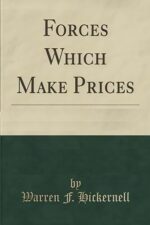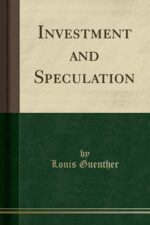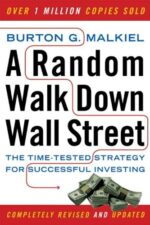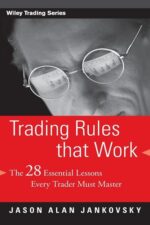Trade Mindfully: Achieve Your Optimum Trading Performance with Mindfulness and Cutting-Edge Psychology
$20.49
Trade Mindfully is a unique resource that applies cutting-edge psychological techniques to trading skills, allowing readers to improve their mental outlooks and maximize the potential of their trading strategies. This book draws upon recent psychological research in behaviorism to teach new approaches that call for better focus, more confidence, and more positive perspectives and outcomes. One of the key concepts covered in the book is mindfulness, a state of mind traditionally touted in the East for its ability to reduce stress and increase perspective, useful qualities for traders looking to rise above emotional obstacles and the poor results they cause. The author also discusses the importance of High Value Trading Actions (HVAs), specific actions that are under a trader’s control. With this guide, trading professionals will be able to form solid strategies based on a combination of these notions and practices, leading to higher levels of trading performance.
Introduction:
This book is divided into three parts. Part I (Chapters 1 through 4) discusses the unique challenges traders face, both mental and emotional. In a very real sense, in order to succeed at trading, traders need to know how they fail. Part II (Chapters 5 through 8) introduces mindfulness, what it is, how it can help traders meet the mental and emotional challenges of trading, and how to do it. Part III (Chapters 9 through 11) presents a robust trading psychology process, made up of three distinctive time frames and the associated high‐value mental skills traders can develop that can take them on a continuous improvement path to excellence and mastery of the trading game.
In Part I we also look closely at fear and its various forms, along with stress, other strong emotions such as anger and boredom, and emotional hijackings—those emotion‐dominant states that cause us to act imprudently and can ruin a trader’s account. We introduce Emotional Intelligence, an important psychological ability, which helps you identify your emotions, understand what they mean, and the patterns they generally follow. This alone can give you a significant advantage in your trading.
Part II introduces mindfulness. Mindfulness is one of the most powerful skills all traders would be wise to develop. Robust research has shown that mindfulness has profound value to traders through its many benefits. With the enhanced focus and concentration afforded by mindfulness, you can see the market and the trading opportunities it presents more clearly. Mindfulness directly helps tame the fear response, strengthens internal emotional regulation, and significantly reduces stress. Mindfulness teaches that you can trade well even though you may have unwanted emotions. The practice of mindfulness along with the advanced psychological skills of defusion, acceptance, and commitment help you keep your focus on the high-value actions that best serve your trades so that you can execute them rather than be disrupted by anxiety, fear, and other unwanted emotions. Mindfulness also helps you reduce common trading errors caused by applying mental shortcuts (cognitive heuristics). It allows you to engage your deliberative mind and strengthens your decision making. Mindfulness also promotes learning and, together with deliberate practice (discussed in Part III), you can develop mastery in trading.
Part III: To achieve excellence and optimum success in trading, in addition to mindfulness and other mental skills, you will need a sound trading psychology process that helps you continuously develop both your mental and technical skills. The trading psychology process we present here is a psychologically informed framework for your development into a successful trader. The framework is adapted from Charlie Maher’s sport and human performance model. This trading psychology framework consists of three core psychological principles of the trading process: High-Quality Preparation, Effective Execution and Constructive Self‐Assessment. Within each principle are four high‐value mental skills every trader will find beneficial.
Contents:
- Traders’ Mental Blind Spots
- Strong Emotions in Trading
- The Struggle to Control and Eliminate Emotions
- The Necessity of Emotions in Trading
- The Traders’ Psychological Edge Lies in a Different Kind of Thinking
- Practice Mindfulness, Trade Mindfully
- Defusion: An Advanced Mindfulness Skill
- Acceptance and Committed Trading
- The Trading Psychology Process: High-Quality Preparation
- The Trading Psychology Process: Eff ective Execution
- The Trading Psychology Process: Constructive Self-Assessment
- Final Thoughts
Trade Mindfully: Achieve Your Optimum Trading Performance with Mindfulness and Cutting-Edge Psychology By Gary Dayton pdf
| Author(s) | |
|---|---|
| Format | |
| Pages | 309 |
| Publication Year | 2015 |




